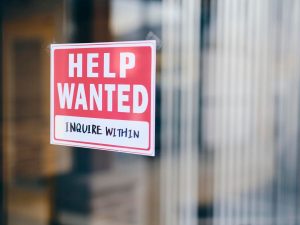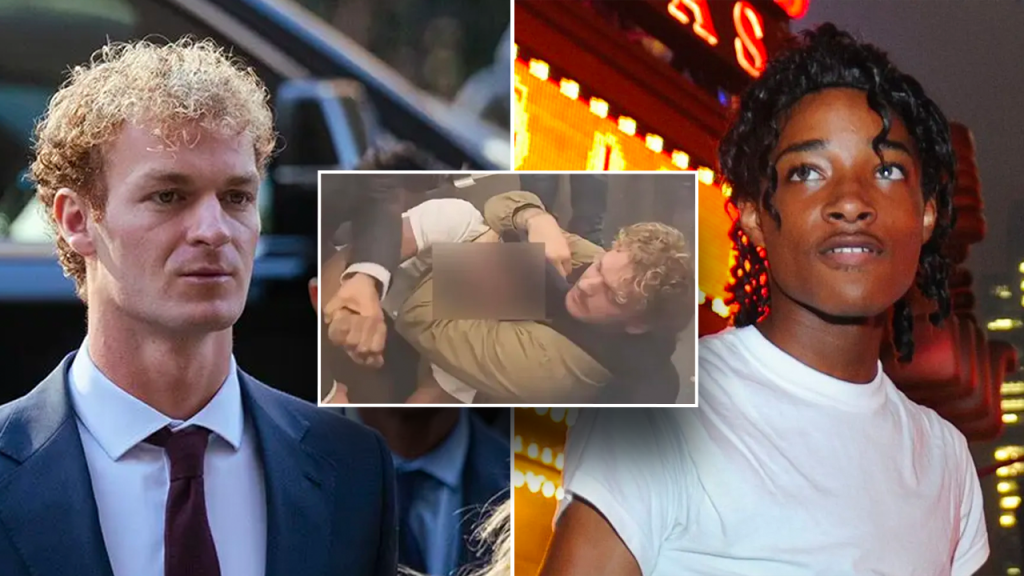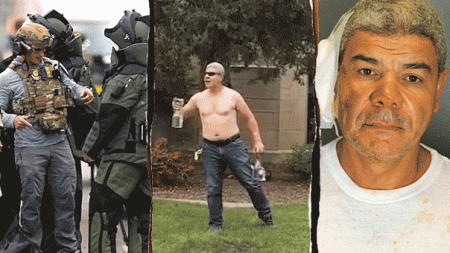In a controversial legal case involving the death of Jordan Neely, New York City Mayor Eric Adams has publicly expressed support for Daniel Penny, the Marine veteran charged in Neely’s death. Neely, a 30-year-old homeless man with a significant criminal history and mental health issues, allegedly threatened individuals on a subway train before being subdued by Penny. Charged with manslaughter and criminally negligent homicide, Penny could potentially face up to 15 years in prison if convicted. As the jury began deliberating on the case, the trial highlighted the complexities of urban safety, mental health, and the responsibilities of bystanders in volatile public situations.
On the day of the incident, Neely boarded the subway, displaying erratic behavior that included throwing his jacket and issuing violent threats, proclaiming that he wasn’t afraid of death or imprisonment. Witness accounts suggest that Penny and another passenger intervened to restrain Neely by applying a chokehold until he became unresponsive. Following the altercation, Penny cooperated with law enforcement. This case has ignited intense debate surrounding self-defense, the use of force, and the adequacy of public resources in addressing mental health crises. As the trial unfolded, Mayor Adams reflected on the broader implications of the incident, expressing concern for the safety of subway passengers and emphasizing the fear they experienced during the confrontation.
During closing arguments, Penny’s defense attorney, Steven Raiser, argued that his client acted out of necessity in a moment of crisis, positing that Penny was responding to a lack of police presence and had no alternative but to act to protect himself and others. The argument highlighted the notion that citizens might bear responsibility for intervening in threatening situations when law enforcement is unavailable. Raiser contended that Penny’s actions should not be vilified when he was attempting to provide help in the absence of official law enforcement intervention, emphasizing that nobody else stepped forward to assist during the incident.
Conversely, Manhattan prosecutor Dafna Yoran presented a different perspective, asserting that Penny lacked empathy for Neely, viewing him not as a person but rather as an obstacle that needed to be removed. Yoran’s framing suggested a larger societal indifference toward mentally ill individuals and emphasized the importance of recognizing the humanity in everyone. The prosecution’s argument raised significant ethical questions about the right to self-defense versus the need for compassion towards those struggling with mental health issues, igniting further discourse about how citizens interact with and support vulnerable populations in society.
Mayor Adams also took the opportunity during his interviews to critique the city’s failing mental health system, lamenting the closure of psychiatric facilities that have led to the marginalization of individuals like Neely. He pointed to systemic failures that resulted in individuals with mental illness being left to navigate their challenges without adequate support or care, which ultimately contributed to the tragic circumstances surrounding Neely’s death. Adams articulated that both the judicial system and societal structures must take accountability for their roles in preventing such incidents from occurring in the future, advocating for a more comprehensive approach to mental health treatment.
In discussing the media portrayal of Neely, Adams highlighted concerns about the imagery used to represent him, arguing that it skewed public perception and minimized the realities of his life, which included a history of violent behavior. He contended that such representations could lead the public to oversimplify complex narratives and invoked empathy that might overlook the systemic issues at play. This commentary reinforces the notion that narratives surrounding crime and mental illness are often shaped by media perspectives, which can influence public opinion and discourse surrounding justice and accountability in urban environments. The ongoing trial and its ramifications continue to draw attention to the intersections of crime, mental health, and societal responsibility, prompting reflection on how urban communities can better serve all their members.










